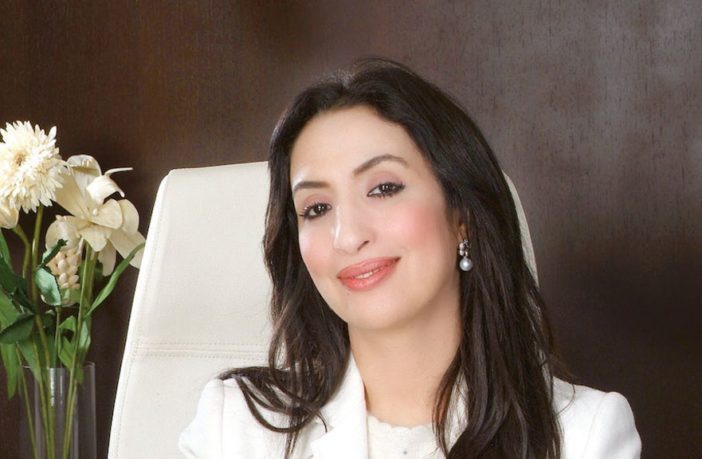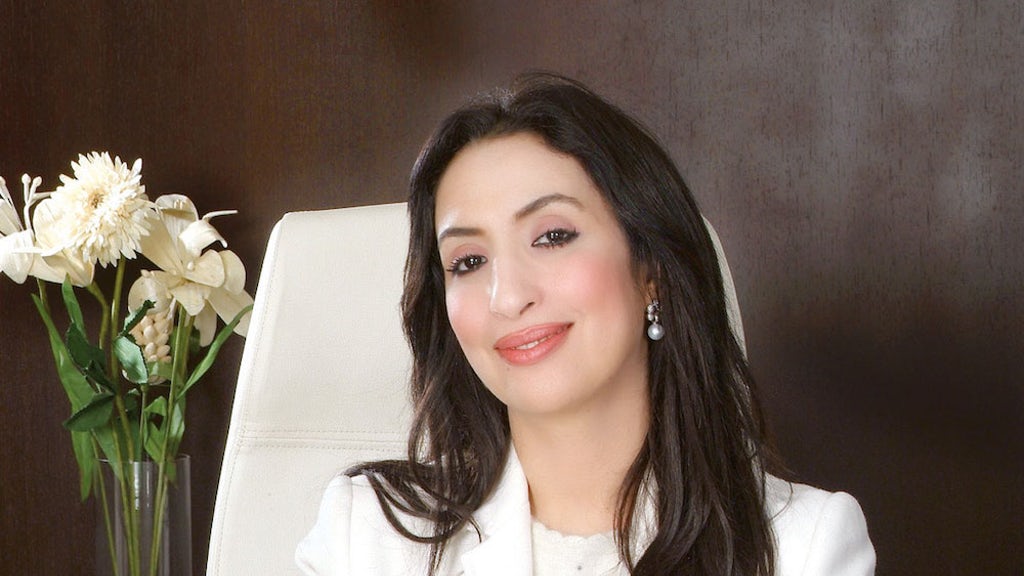OZY
Alice Morrison
Salwa Idrissi Akhannouch is impossibly glamorous. She is also one of the most influential entrepreneurs in Morocco, occupying a spot on Forbes’ list of the “Most powerful Arab businesswomen.”
And, as one-half of Morocco’s golden couple — together with her husband, billionaire businessman and politician Aziz Akhannouch — she wields enormous social and political clout.
Akhannouch, who is in her mid-40s, is an executive, a wife and the mother of three children, but cast from your mind the image of the pantsuited superwoman. As the founder and CEO of the Aksal Group, a Moroccan leader in luxury goods, department stores and shopping malls, she is a fashion icon, dressed in designer clothes and profiting from them — massively — to the tune of 5 billion Moroccan dirhams ($514 million), Aksal’s yearly revenue.
The jewel in Aksal’s crown is the Morocco Mall, the largest shopping center in Africa, constructed in 2007 at a cost of over $240 million. Aksal has a 50 percent stake in the retail juggernaut and holds the exclusive franchise for fashion brands such as Zara, Ralph Lauren, Banana Republic, Gucci and Gap.
For someone born into wealth, inheriting a fortune from her grandfather Haj Ahmed Belfiqih, who held a virtual monopoly on Morocco’s tea trade in the 1960s, Akhannouch is fiercely ambitious. “In Morocco, we are still only in the beginning of the sector,” she says of luxury retail. She projects growth of “at least 20 percent a year,” and says Aksal has plans to bring other high-end international brands to her country.
Brands that will be of no interest — and unaffordable — to the vast majority of Moroccans who shop at local markets and earn, on average, $250 a month (most women do not hold paying jobs). Still, the most recent AT Kearney Global Retail Development Index puts Morocco in 14th position with national retail sales of $39 billion, citing evidence of the country’s “large and increasingly wealthy population, along with a relatively stable economic and political situation.” Regional terror threats remain constant, but Morocco offers relative security and a flourishing tourism sector — with investments in infrastructure and proliferating shopping malls boosting growth.
The World Bank is also bullish: “Looking forward, Morocco continues to face the paramount challenges of promoting stronger private-sector-led growth and job creation, and increasing shared prosperity.” What this means for Akkhannouch’s business is that Morocco’s affluent “few” are gaining significantly more wealth, and they want to spend it.
These affluent consumers are keenly aware of emerging trends in Western countries, according to Euromonitor International, and they are familiar with leading international apparel and luxury brands thanks to the expansion of the internet in their country. But the market growth in high-end retail is relatively recent. When Akhannouch opened the first Zara superstore in 2004, she was decidedly ahead of the curve, gambling on what she believed was a growing — and more moneyed — middle class.
Akhannouch keeps her personal life strictly off-limits, but what is known is that she was born in Casablanca to an Amazigh (Berber) family. She founded Aksal in 1994, one year after her marriage to Aziz Akhannouch, the chairman and CEO of Akwa Group, a multibillion-dollar Moroccan conglomerate with interests in petroleum, oil and chemicals.
True, she was born into enormous wealth — and her marriage has brought only greater affluence — but the fact remains that Akhannouch has built a retail empire in a country where only 10 percent of entrepreneurs are women. Morocco may be a beacon among Islamic nations for women’s rights and advancement, but restraints are still in place in what remains a traditional society — and female entrepreneurs face considerable obstacles.
“For gender parity in entrepreneurship, the problem is not on the legal or regulatory level, but rather in the struggle against the stereotypes that confront a woman who wants to start up an independent business,” says Asmâa Morine Azzouzi, president of the Women Business Leaders Association in Morocco. “She has to override the cultural brakes if she wants to attempt an entrepreneurial venture. Often, she will self-censor and self-limit and fail to convince herself of the worth of her own projects.”
Regardless of gender, Morocco’s business culture can be punishing for those without the proper contacts or background. Chama Darchoul, a woman who beat the odds to become CEO of the Media Culture Agency, tells OZY, “For a man or a woman in business here, but especially a woman, you can only succeed if you have money, a family name or a network. Here it is all about baksahbi, which means ‘your father is my friend.’ It is not about your skills or where you studied or your ambitions; it is about who you are, who your father is, who your cousin is …”
Akhannouch’s baksahbi is impeccable, and, joined as she is to a billionaire husband, who’s also Morocco’s minister of agriculture, she has clear advantages over most aspiring businesswomen. Still, she insists, “Being a woman has never seemed to me to be an obstacle in my career,” and she has been vocal about doing all she can to promote equal opportunity.
“[The mall] helped me to attract and to recruit the best female professionals in Morocco and to mobilize skills in various fashion jobs,” she says, adding, “At Aksal, we have as many women as men at every level.” Akhannouch concedes that the gender parity at Aksal is highly unusual in Morocco — and is partly a function of the sector in which they work — so she continues to advocate for women advancing up the ranks, pointing to the “extraordinary synergies” that result.
In October, Akhannouch presided over the launch of Yan & One, Aksal’s new cosmetics brand conceived for the Moroccan market but with a vision to expand internationally. Akhannouch’s brainchild — with a name that honors her Berber roots (Yan means “one” in the Amazigh language), the brand has a simple message: Every person is unique. Call it a celebration of individuality and diversity — or a winning marketing strategy to attract consumers of all shapes and colors — but for this singular woman, it seems there’s no such thing as a man’s world.








